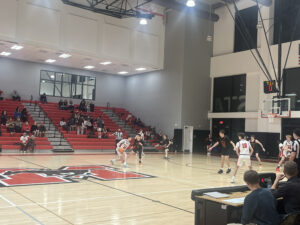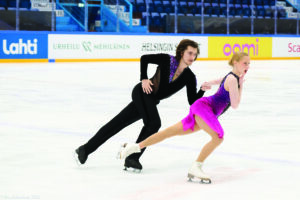
Culminating a grueling 5 hour, 15 minute virtual meeting Monday night, the Falls Church City Council voted unanimously, 6-0, to enact a “Firearms on City Property and Events” ordinance that will go into effect Nov. 1.
It prohibits the possession of firearms, open or concealed, in official City-owned locations such as buildings (including City Hall and the Community Center), parks, facilities and streets when City-sponsored events are occurring.
It augments existing prohibitions of firearms on or in the vicinity of all schools.
The ordinance is modelled on one passed in Alexandria in June and ones that are expected to be adopted soon in Arlington and Fairfax.
It was initiated following the July 1 implementation of a new law passed by the State Legislature and Gov. Ralph Northam permitting local jurisdictions to enact such measures for the first time since the 1980s, when the General Assembly acted to prohibit such local ordinances.
The meeting last night was made lengthy by the public reading by City officials of some 75 public comments of three minutes or less (with some that went considerably over), all but two of which opposed the ordinance, and of those more than half from persons not living in the City of Falls Church.
The reading of those comments consumed more than two hours, from 9:21 – 11:30 p.m.
Following that, in comments prior to the vote, Councilmember Letty Hardi reported that she’d tallied all the comments she’d received, including 676 emails, and two petitions each with nearly 500 signatures, prior to the comments made at the meeting, and that, she said, “From my count about 30 percent of the total comments and signatures are actual residents of the City of Falls Church, and of those, there was nearly a 3-to-1 margin of City residents who support the ordinance.”
She said, “I have heard an overwhelming number of actual residents, who have long asked for this authority since it was taken away in the 1980s, who believe that guns don’t belong where children play, where they check out library books, where they are conducting City business, where they are buying food at the Farmer’s Market, or where they vote.”
She added, “The data is overwhelmingly clear that more guns lead to more deaths. The statistics show that concealed carry guns are rarely used effectively in self defense, but lead to more accidents and unintended injuries, ultimately doing more harm to others than their intent….We do have this ability to honor the wishes of our citizens to make our library, park, city hall, community center and public events to be gun-free.”
Numerous of those who testified against the ordinance cited an unscientific poll in the News-Press last week that showed a wide majority also opposed.
Upon further review of the News-Press’ unscientific poll from last week, which asked visitors to its website whether they agreed with the Council’s preliminary vote in favor of banning guns on City property, it found that 2,500 votes had been cast. That dwarfed the usual weekly poll numbers of a few hundred.
Falls Church Chief of Police Mary Gavin said that the new law can be adequately enforced.
At a work session on the topic last week, she noted that there are as many as 700 citizens in the City of 15,000 who hold “concealed carry” permits due to their roles with the federal government and regional agencies.
“There are a lot of licensed concealed weapons carriers in the National Capital Area,” she said, “and the vast majority are responsible, safe gun owners.” For many of them, she added, “It’s a lifestyle.”
While the new ordinance will not go into effect until Nov. 1, in the meantime signage will be developed to go up in buildings and City properties indicating “No Gun Zones.” Educational efforts will also be undertaken, Chief Gavin said. “We want there to be no surprises so any incidents can be handled with dignity and grace as we go about it all in a smart way.”
She said the approach generally, if it is discerned that there is a violation, “to seek compliance with the law and then only to ban an individual or make an arrest.”
Violations of the ordinance will be designated as a Class 1 misdemeanor and can result in a prison sentence of up to a year and a fine of up to $2,500.
Late minor modifications to the ordinance permit licensed persons to leave guns out of view in their cars and loaded if necessary.
A lengthy list of exemptions include those required by the Virginia Code, such as those with the Reserve Officer Training Corps, NCAA rifle teams, trap and skeet clubs and other school of higher education courses, classes, clubs or activities, as well as military personnel acting in the course of their duties, sworn and retired law enforcement officers, private security personnel hired by the City of Falls Church, and historical re-enactors and others using inoperative firearms.
A lot of the Council discussion Monday had to do with various special situations, such as sidewalks that are on park property (as in the case of Park Avenue at Cherry Hill Park). Also, on special events in the streets of the City, prohibitions apply only to official City-sponsored events where the City is fully on top of all the aspects of the event.
Councilman David Snyder, who has been an outspoken advocate of expanded gun control measures since first joining the Council in 1994, noted prior to the vote Monday that every year in the City’s legislative “wish list” sent to Richmond, the City Council has advocated greater controls of the kind voted into law this week.
“The citizens support this, the data supports it, and City employees do, too,” he said.
Vice Mayor Connelly said to those who argue that the ordinance is “an issue in search of a problem” as the City has no evident need for it, “Then, if it is so safe here, why are you (opponents of the ordinance) all carrying guns?”
“The problem we are trying to solve,” she said, “Is that people don’t want guns in public places.”
Mayor David Tarter said that “it is safer not having guns in our library, community center and City Hall, anywhere around our children.”
Opponents of the ordinance, in their written statements read into the official record at the virtual Council meeting Monday, argued, as one put it, that the measure “is a feel good effort that discriminates against law abiding citizens.”
Others argued against what they called “giving criminals the advantage by limiting the rights of law abiding citizens on behalf of a basic need that has not been established.” it “makes the problem worse,” it “strips innocent citizens of the ability to defend themselves,” it “does nothing to improve our safety,” and they allege that 90 percent of violence occurs in “gun free zones.”













